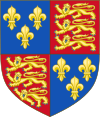THIS WAS DELETED BY I.P. 162.198.9.231 SO I REPEAT: Mugginsx, who is MySweetMelissa? Re:this here? Basket Feudalist 15:52, 17 September 2013 (UTC)
+
Also, I should remind everyone that Lucia is also topic-banned from WP:ANI. Given that this isn't (quite) ANI, and that this wasn't her starting a thread about somebody, but me starting a thread about her, I think it would be only fair to allow her to comment here if she wants. Let's go easy on the block button if she posts here. — Mr. Stradivarius ♪ talk ♪ 15:23, 24 September 2013 (UTC)
−
+
- Normally, I'd support such a thing, but she really hasn't been doing very well on this interaction ban so far. About a month in, she already appealed to have it removed, largely on the grounds that it was "unjust", which was unanimously rejected, and clearly being warned about breaking it here too. I'd like to see other's thoughts I guess... Sergecross73 msg me 15:35, 24 September 2013 (UTC)
−
+
- I don't see any reason not to allow this, provided it is abundantly clear to her that the exemption is for purposes of participating in mediation only and she is still to stay away from the actual content and related talk pages. Beeblebrox (talk) 19:26, 24 September 2013 (UTC)
−
- Yes you have posted there and I have answered you each time; you ask if there is a virus on the page and then call me inexperienced? Your I.P. was treated like all vandalising-I.P's, and made public. Perhaps you would like to delete this message too? I don't care if you edit from an IP, but you now have TWO accounts on the English Wikipedia and seem to be going out of your way to NOT have to say so. Basket Feudalist 16:39, 17 September 2013 (UTC)

|
Good as gold! | |||||||
| Hi, Sarah. I'm AutomaticStrikeout and I recently created a new thingy that I call the Golden Editor Award. A short time back, I requested some nominations, and User:TheOriginalSoni nominated you. Even if he hadn't, I probably would have eventually declared you a Golden Editor anyway. There likely are plenty of reasons I could provide which make you a Golden Editor, but I will focus on what might be your finest contribution: the Teahouse. An inviting and friendly place where new users can get helpful answers was a very good idea. I have personally utilized the Teahouse on more than one occasion and I'm hardly alone. Even without considering all the other things you've done, the contribution of the Teahouse makes you a Golden Editor. AutomaticStrikeout ? 16:00, 17 May 2013 (UTC)
Roddy Carroll O/C Armagh INLA 1981 [1] Named by Harry Kirkpatrick in 1985 during the supergrass trials as 'having been involved in a whole series of actions, including robberies and killings' [2] Shot dead onwhilst driving through the Mullacreevie housing estate, Armagh, by the RUC E4 unit on Sunday, 12th December 1983, which eventually led to the Stalker Enquiry in the 'Shoot to kill' policy of the RUC.[3][4] ________________________________________________________________________ WP:GNG Govt WP:NOTE +1 WP:NOT WP:AGF WP:JOKE WP:PLAGARISM WP:ANI
Reign of Edward IVedit
Estates and titleseditHe was granted the Duchy of Gloucester on November 1st 1461, and on August 12th the next year was awarded large estates in northern England including the Lordship of Richmond, Yorkshire, and that of Pembroke, Wales. He also gained the forfeited lands of the Lancastrian de Vere, earl of Oxford in East Anglia. In 1462, on his birthday, he was also made Constable of Gloucester and Corfe castles[5] and appointed Governor of the North, becoming the richest and most powerful noble in England. On 17 October 1469, he was made Constable of England. In November he replaced William Hastings, 1st Baron Hastings as Chief Justice of North Wales. The following year, he was appointed Chief Steward and Chamberlain of Wales. On 18 May 1471, Richard was named Great Chamberlain and Lord High Admiral of England. Other positions followed: High Sheriff of Cumberland for life, Lieutenant of the North and Commander-in Chief against the Scots and hereditary Warden of the West Marches. Two months later, on July 14th, he gained the Lordships of the strongholds Sheriff Hutton and Middleham in Yorkshire and Penrith in Cumberland, which had previously belonged to Warwick the Kingmaker. 1471 military campaigneditOnce Edward had regain the support of Clarence, he was able to mount a swift and decisive campaign to regain the Crown through combat; it is believed that Gloucester was his principal lieutenant.[6] He may have led the vanguard at the battle of Barnet, in his first ever command, on April 14th 1471 where he successfully outflanked the duke of exeter's wing,[7] although the degree to which his command was fundamental may have been exaggerated.[8] However the fact that his personal household sustained losses does indicate him being in the thick of the fighting.[9] A Contemporary source is clear about his holding the vanguard for Edward at Tewkesbury, deployed against the Lancastrian vanguard under the duke of Somerset on May 4th[10], and his role, as Constable of England (sitting alongside John Howard as Earl Marshal) in the trial and sentencing of leading Lancastrian captives captured after the battle. War with ScotlandeditGloucester's increasing role in the north from the mid-1470's to some extent explains his withdrawal from the Royal Court, and war with Scotland was looming by 1480. On 12th May that year he was appointed Lieutenant-General of the North (a position created for the occasion) as fears of a Scottish invasion grew. Louis XI of France had already attempted to treaty with Scotland, in the tradition of the 'Auld Alliance', according to a contemporary French chronicler.[11] Gloucester had the authority to summon the Border Levies and issue Commissions of Array to repel the Border raids. Together with the earl of Northumberland he launched counter-raids, and the King and Council formally declaring war in November 1480, he was granted £10,000 for wages. The King failed to arrive to lead the English army and the result was intermittent skirmishing until early 1482. Gloucester witnessed the treaty with James, duke of Albany, brother of the Scottish King.[12] Northumberland, Stanley, Dorset, Sir Edward Woodvillle, and Gloucester took approximately 20,000 men, and took the town of Berwick almost immediatly. The castle held out until August 24th 1482 when Richard recaptured Berwick-upon-Tweed from the Kingdom of Scotland. Although it is debatable whether the English victory was due more to internal Scottish divisions rather than any outstanding military prowess by Gloucester, it was the last time that the Royal Burgh would change hands between the two realms.[13] Exile and returneditDuring the latter half of the reign of Edward IV, Richard demonstrated his loyalty and skill as a military commander. Following the earl of Warwick's rebellion of 1470, in which he made peace with Margaret of Anjou and promised the restoration of Henry VI to the English throne, Gloucester, along with |William, Lord Hastings, Earl Rivers, and Anthony Woodville escaped from a near capture at Olney, Lincolnshire by Warwick's brother, Lord Montagu. On October 2nd they sailed from King's Lynn in two ships; Edward landed at Marsdiep and Gloucester at Zeeland.[14] It is said that, having left England in such haste as to possess almost nothing, Edward was forced to pay their passage with his fur cloak; certainly Gloucester borrowed three pounds from Zeeland's town-bailiff.[15] They were attainted by Warwick's only Parliament on November 26th.[16] They resided with Louis de Gruthuse in Bruges, who had been the Burgundian Ambassador to Edward's court, however it was not until Louis XI of France declared war on Burgundy that Charles, duke of Burgundy materially assisted their return, providing thirty-six ships and 1200 men. They departed Flushing for England on March 11th 1471. High storms prevented them from landing in Yorkist-sympathetic East Anglia and eventually (March 14th) they ran ashore at Holderness. The town of Hull refused him entry, and Edward gained entry to York by using the same claim as Henry of Bolingbroke had prior to deposing Richard II in 1399; viz, that he was merely reclaiming his Dukedom of York rather than the Crown.[17][18] Relations with ClarenceeditIn contrast to the bounty bestowed on him by the King, their other surviving brother, George Plantagenet, 1st Duke of Clarence, fell out with Edward and was executed for treason. Council of the NortheditRichard controlled the north of England until Edward IV's death. There, and especially in the city of York, he was regarded with much love and affection.[19] The Council of the North was an administrative body set up in 1472 by king Edward IV of England, the first Yorkist monarch to hold the Crown of England[1] Its purpose was to improve government control and economic prosperity, to benefit the entire area of Northern England. Edward's brother, Richard Duke of Gloucester was its first Lord President from 1472 until his accession to the throne in 1483 as Richard III. Throughout its history, the council was always located within Yorkshire, first at Sandal Castle, before being re-located to King's Manor, York.[20] On his accession, he made his nephew John de la Pole, 1st Earl of Lincoln president and formally institutionalised it as an off-shoot of the main Royal Council; all its lettters and judgements were to be issued on belalf of the King and in his name.[21] The Council as of April 1484 comsisted of the earl of Northumberland, Lords Greystoke, Scrope of Bolton, and Scrope of Masham, and Sir John Conyers, as welll as lawyers and gentry. The Council had a budget of 2,000 marks per annum (approximately £1320) and had issued its 'Regulations' by July of that year: councillors to act impartially and declare vested interests, and to meet at least every three months. Its mmain foocus of operations was Yorkshire and the north-east, and its primary responsibilities were land disputes, keeping of the King's Peace, and punishment of lawbreakers.[22] Its structure and jurisdiction remained virtually identical until its dissolution in 1641. PatronageeditHe raised the churches at Middleham and Barnard Castle to collegiate status, specifically for the purpose of providing residency for priests to pay for the Royal Family and Gloucester's own.<ref>Kendall, Richard III, p.127. |
- ^ Holland, J., & McDonald H., Deadly Divisions, Dublin 1994, p.189
- ^ Holland, J., & McDonald H., Deadly Divisions, Dublin 1994, p.217
- ^ http://cain.ulst.ac.uk/issues/violence/docs/rolston00.htm
- ^ Holland, J., & McDonald H., Deadly Divisions, Dublin 1994, p.217
- ^ Ross, C., Edward IV, p.9
- ^ Ross, Richard III, p.21
- ^ Kincross, J., The Battlefields of Britain', London 1988, p.89
- ^ Kendall, p.93-9
- ^ Ross, Richard III, p.22
- ^ Ross, ibid., citing 'The Arrivall'
- ^ Phillipe de Commynes, cited in Ross, Edward IV, p.278
- ^ Ross, C., Edward IV, p.9
- ^ Ross, C., Richard III, pp.44-7
- ^ Ross, 'Richard III', p.19
- ^ Lulofs, M. 'King Edward In Exile', The Ricardian, iv, 44 (1974), p.9-11 (both references)
- ^ Ross, 'Edward IV', p.155
- ^ Ross, 'Edward IV' p.153
- ^ Ross, 'Richard III', p.20
- ^ Kendall, Richard The Third, p. 133.
- ^ Ross, Richard III, p.143 n.55
- ^ Ross, Richard III, p.182
- ^ Ross, Richard III, p.183

